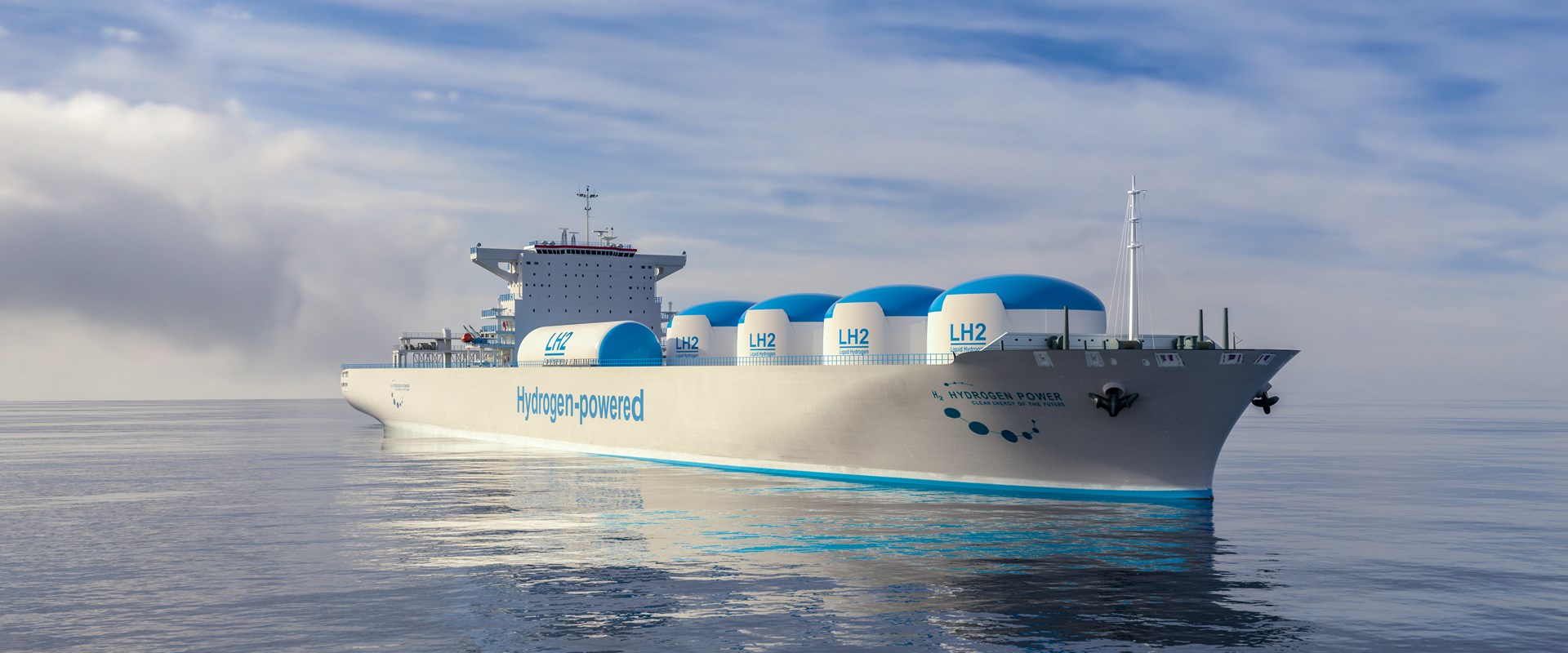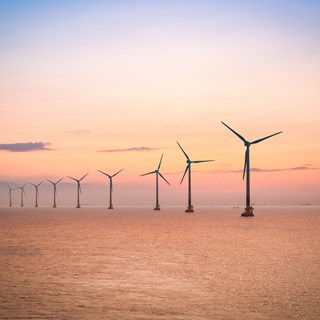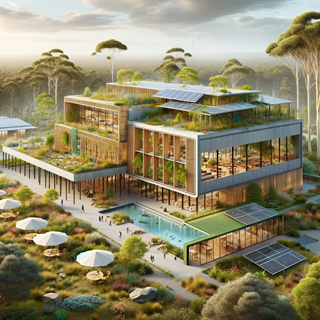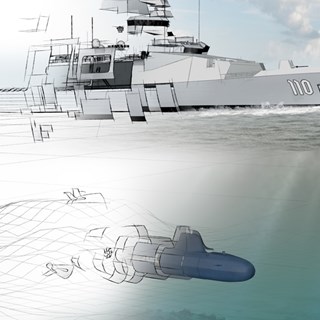
Harnessing Hydrogen: Pioneering a Sustainable Maritime Future with BMT's Andrew Harris
In the relentless pursuit of sustainability within the maritime industry, we stand at the forefront of innovation and change.
23 February 2024
In the relentless pursuit of sustainability within the maritime industry, we stand at the forefront of innovation and change. Under the insightful leadership of Andrew (Andy) Harris, Technical Lead and Principal Naval Architect, we have embarked on a pioneering project within the Blue Economy Cooperative Research Centre (CRC), and with research lead, Dr Hongjun Fan of the Australian Maritime College, aimed at revolutionising the way we think about vessel propulsion. This ambitious research initiative focuses on the feasibility of hydrogen and ammonia as green fuel alternatives, marking a significant step towards a zero-emission maritime future.
The project led by Andy and his team of industry and academic professionals, is multi-faceted, with objectives that extend beyond the realms of mere technological feasibility. The primary goals include:
Conducting a comprehensive feasibility study into the maturity of hydrogen and ammonia-powered vessel technology.
Analysing the near-term market potential for such vessels within Australian waters and as exports.
Understanding the intricate relationship between the logistic supply chain for hydrogen fuels and the anticipated adoption of hydrogen vessel propulsion in Australia and New Zealand.
With the maritime industry accounting for 2.5% of global greenhouse gas emissions, the shift towards green fuel options such as hydrogen and ammonia is not just innovative—it's imperative. This transition aligns with global efforts to reduce environmental impact, with the ambitious target of introducing the first zero-emission fleet by 2030. Countries across Europe are already making strides in developing hydrogen-powered vessels, setting a precedent for Australia and New Zealand to follow suit.
The path to hydrogen-powered vessels is fraught with challenges, from safety concerns to economic viability and the need for specialised infrastructure. However, experimental vessels in the UK and Canada offer a glimpse into the potential that hydrogen fuel holds. This research project aims to explore these challenges in depth, drawing lessons from international efforts to pave the way for Australian-made hydrogen vessels.
The outcome of this research will provide invaluable insights for a wide range of stakeholders, from naval architects and marine engineers to shipping companies and policymakers. By examining global best practices and assessing local capabilities, the project seeks to lay the groundwork for Australia and New Zealand's transition to a net-zero emission maritime industry.
In a significant milestone, the team released the Phase I report in November 2023, offering a thorough review of hydrogen's viability as a marine fuel in Australia. This report not only highlights the economic and technological feasibility of hydrogen-powered vessels but also examines regulatory readiness, safety design principles, and the specific vessel types best suited for hydrogen adoption.
As we continue to explore the untapped potential of hydrogen and ammonia for vessel propulsion, the maritime industry stands on the cusp of a new era. This research project not only signifies a pivotal shift towards sustainable maritime practices but also underscores our commitment to addressing complex, real-world problems through innovation and technical excellence. The journey towards a zero-emission shipping industry is challenging, yet with initiatives like these, it's a future well within our reach.

Andrew Harris is a chartered naval architect working primarily on Australian naval ship projects based in Adelaide. He has over 20 years experience in ship design from concept through to production, particularly through his former roles as Platform Architecture Manager for the Aircraft Carrier Alliance (UK). Formerly the Head of Naval Architecture for BMT’s UK defence company, Andrew has led teams of Naval Architects and Marine Engineers, and is well versed in the management of suppliers and subcontractors. These teams have included personnel drawn from multiple industrial organisations as well as the UK MoD.
Andrew has extensive knowledge of military requirements, processes and working practices for surface ship design. Since relocating to Australia, Andrew has increasingly worked in marine renewable energy fields and in options for decarbonisation of marine operations. Andrew is able to apply this knowledge in both the commercial shipping and naval sectors. Andrew has a Bachelor of Engineering (Hons) in Ship Science.

Ian McRobbie
Our team attended the AOG Energy Conference and WOW event, discussing the future of renewable energy and sharing insights on its progress

N/A
Discover how our latest advancements in MetOcean Dashboards are transforming asset management. With our innovative BMT Deep service, we're leveraging historical and real-time data to produce tailored dashboards to empower asset operators with actionable insights. Dive into the future of data-driven decision-making and see how our solutions are designed to meet unique operational needs.

Melanie Thomas
Australia faces a significant challenge: our infrastructure must not only withstand the increasing occurrence of natural disasters, which currently cost our economy $38 billion annually—a figure projected to double by 2060 due to escalating emissions—but must also transition towards sustainability. Climate Expert Melanie Thomas, discusses her research into Climate Resilient Building Materials with Low Embodied Carbon Emissions.

Andrew Harris
After releasing the Surface Fleet Review the Australian Government has committed $54 billion over the next decade to future naval defence, emphasising the importance of the maritime domain to Australia’s defence capability. Naval architects will play key roles in acquiring ship designs for Australia, overseeing their build, and sustaining them through life.